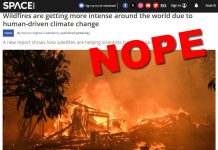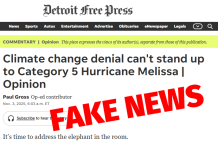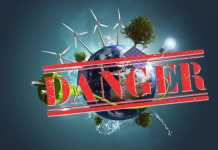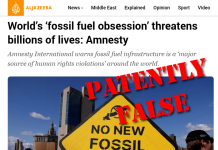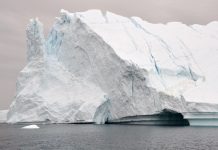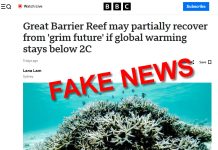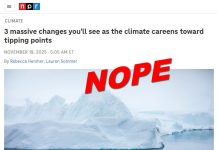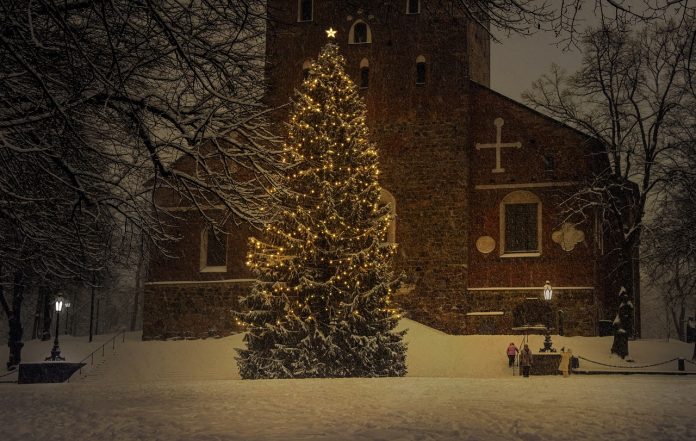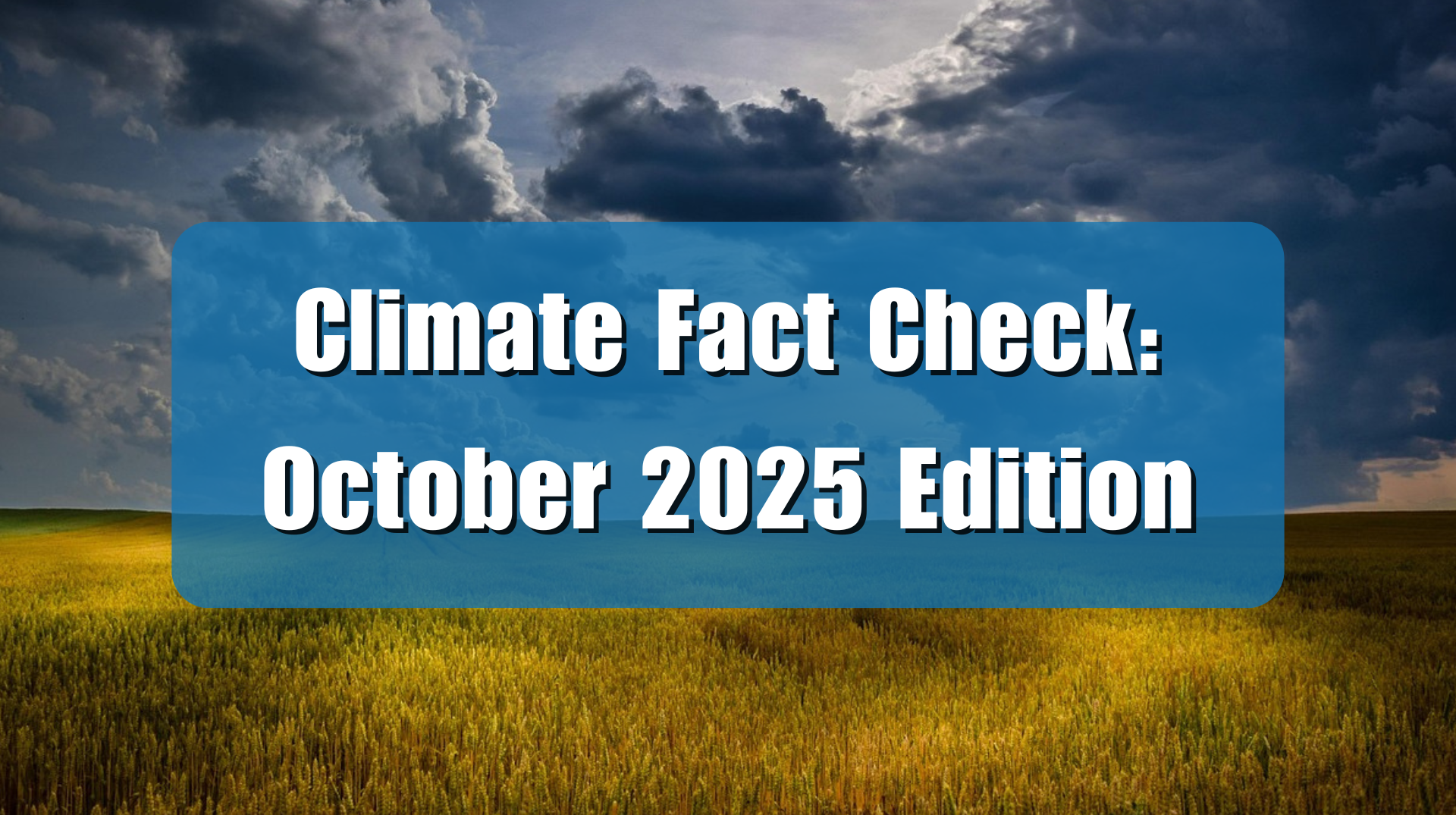Forbes and NBC News were among several media outlets that ran what turned out to be ill timed articles on Christmas Eve and Christmas Day claiming climate change threatened to end snow on Christmas. This is false. Despite repeated claims of the “end of snow,” made repeatedly by myriad mainstream media outlets in the past, data show snowfall amounts overall have remained relatively stable over the past few decades, with, if anything, snow falling earlier while declining late in the season with a slightly earlier arrival of spring. Overall snow trends are virtually unchanged, and white Christmases are as frequent or infrequent as they have been historically going back to the little ice age prior to the late 1800’s when, due to entirely natural factors, winters were more severe.
Forbes’ Christmas Day article, “Will Climate Change End the Dream of a White Christmas?” and NBC’s Christmas Eve story, “How climate change is making white Christmas a rare event,” were both misleading and particularly ill-timed. Misleading because snowfall and snowpack on or around Christmas is not becoming rare, and ill-timed because even as the stories were running, New York and Boston, among other areas on the Eastern Seaboard were experiencing their first White Christmases in years, with more than one inch and four inches of snow on the ground respectively in the two cities. Lest on think that proves the point that snow for Christmas is becoming a rarer occurrence is these locations, it turns out snowfall and snowpack is relatively rare for both cities on Christmas due to their locations on the Atlantic ocean which moderates temperatures across the region.
Misleadingly bemoaning the disappearance of show, Forbes wrote:
For generations, the allure of a white Christmas has captured imaginations worldwide, a phenomenon immortalized in songs and movies. Yet, as global temperatures rise due to climate change, the possibility of snow-covered Decembers is slipping further out of reach in many regions. Recent data reveals the chilling truth that climate change is reshaping winters, and the implications go far beyond holiday aesthetics.
According to NASA, the planet’s average surface temperature has risen by about 1.1°C since the late 19th century, with most warming occurring in the past 40 years. Winters, once defined by prolonged snowfalls, are growing shorter and milder.
Neither Forbes nor NBC are the first to assert that climate change means the end of snow. Sadly, for media integrity, they also likely won’t be the last make such false claims. The New York Times, CNN, and the Daily Telegraph, among other promoters of fake climate news, have made such claims previously. Climate Change Weekly and Climate Realism, here, here, and here, for example, have debunked such claims in the past couple of years.
Had Forbes and NBC looked beyond the slight rise in temperature to speculate about snow’s decline, and rather looked at long-term snow data, as captured by the Rutgers Global Snow Lab, they would have found, that snow extent in the Northern Hemisphere has increased over the past 50 years of modest warming. (See the graph, below)
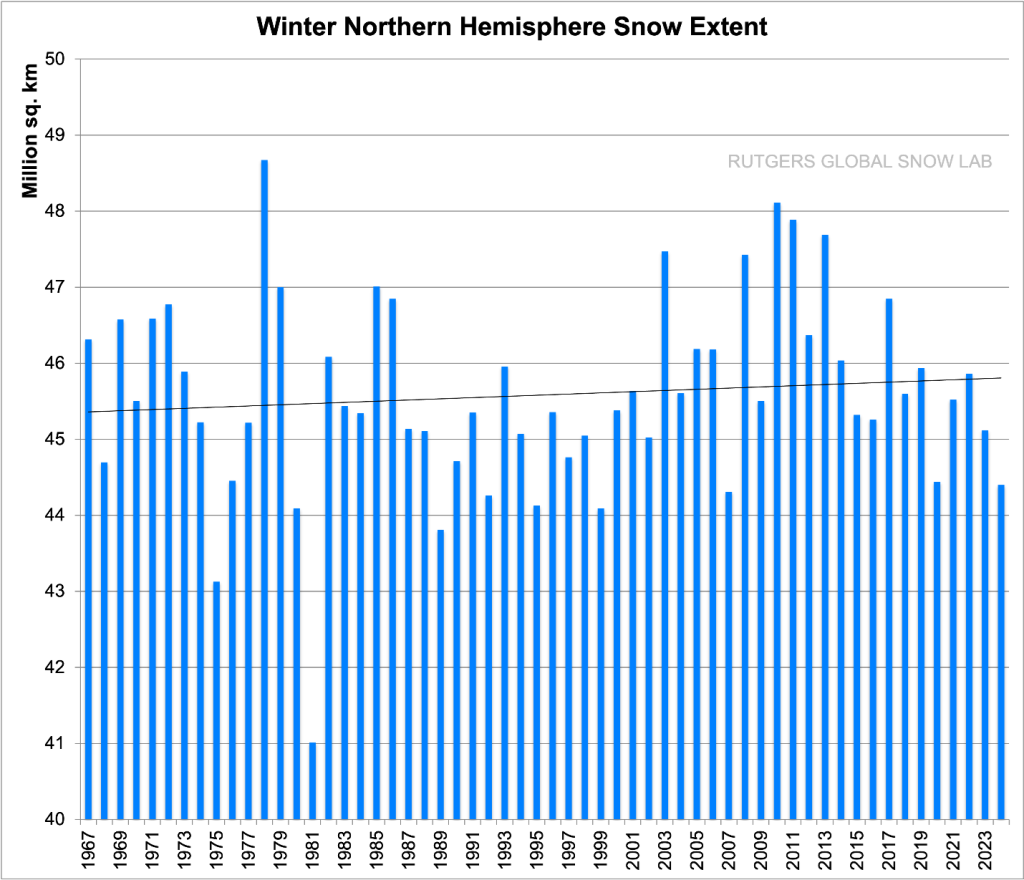
In fact, the now seemingly discontinued site, Cold Weather Report, during its operation detailed the number of snow records set in the United States and around the globe in recent years. Electroverse has an even longer, continuous track record for covering unusually severe cold and snow events and the harms they cause. Forbes and the other mainstream media outlets seemingly can’t be bothered to check the records discussed in sites like this before running their annual, seasonal slate of misleading alarming climate change stories about the end of snow.
As discussed in Climate at a Glance: Snowpack, NASA satellites also have measured a modest increase in snow cover across North America, Europe, and the Northern Hemisphere as a whole since the 1980s. (See the graph, below)
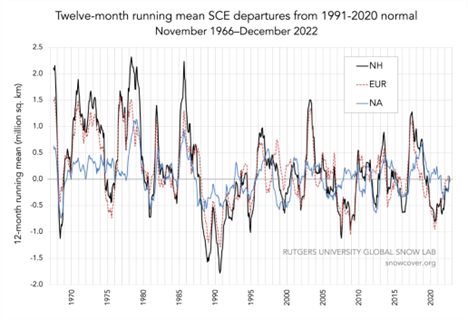
Some falls, winters, and springs will see colder temperatures and more snow than others, some will see the opposite, warmer temperatures and less snow, but long-term, there has been no trend in declining snowfall, snowpack, or snow extent during the recent period of modest warming. Credible news outlets should report this fact rather than trying to push alarm and climate action based on a false narrative about the end of white Christmases.




